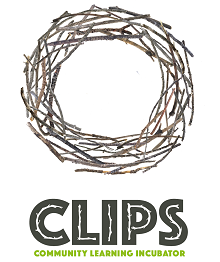Adaptation & Resilience
Besides vision, mission and concrete strategies group projects need to have tools for self-regulation and adaptation. Like a living organism it needs to receive feedback from the surroundings through various channels and pay attention to it. Such feedback comes in the form of consequences of our actions on our lives and lives of other people.
This manifests on each of the five layers of the CLIPS model:
- in other people’s responses (individual)
- in group atmosphere (community)
- in motivation for developing vision, mission and strategic goals (intention)
- in efficiency of managing decisions and organizing tasks (structure)
- in noting concrete results of what is implemented (practice)
Since the environment and circumstances are alive and constantly changing, the project will face diverse pressures. For example: if a part of the mission is ensuring food self-sufficiency but environmental circumstances create factors of risk (drought, poor soil, etc.), then the project will have to adapt to the real, although undesired situation.
When the project develops there can be unexpected moments of shock causing big communal challenges. Accidents, fires, big financial difficulties, etc. require the project to practice consciously capacities of resilience. This is necessary in a world where things can change quickly.
A clear vision of the process, not only of the goal, allows for integration of strategy and group culture, thus enabling adaption to new situations or, in other words, resilience.
Both results and process need to be assessed periodically.
Collective creativity is the main source of adaptability. Creativity does not only refer to artistic expression but also to the capacity for generating innovations. There are many dynamics for learning and boosting innovativity: games, brainstorming, mind mapping, creative problem solving etc. Groups can choose methods which resonate with their own character and preferences. It is necessary to to understand how important change is and to allow the process of change to constantly go on, being always ready to adapt to the new reality.

